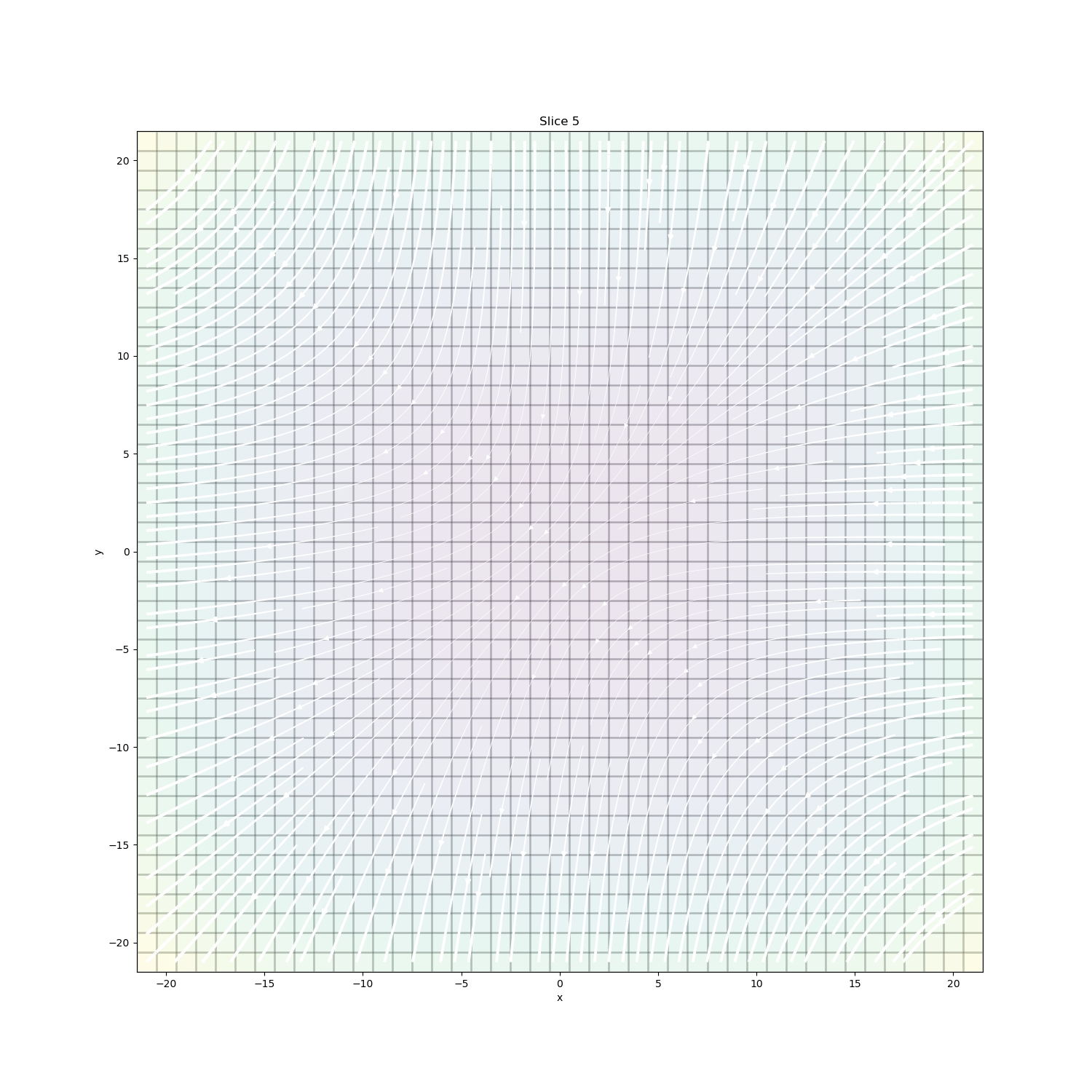Note
Go to the end to download the full example code.
Plotting: Streamline thickness#
A simple example to vary streamline thickness based on the vector amplitudes
Author: @micmitch <https://github.com/micmitch>
import numpy as np
import matplotlib.pyplot as plt
from discretize import TensorMesh
Create mesh#
Minimum cell size in each direction
dx = 1.0
dy = 1.0
dz = 1.0
# Number of core cells in each direction
nCoreX = 43.0
nCoreY = 43.0
nCoreZ = 43.0
# Cell widths
hx = [(dx, nCoreX)]
hy = [(dy, nCoreY)]
hz = [(dz, nCoreZ)]
# Desired Core mesh origin (Bottom SW corner)
x0 = -21.5
y0 = -21.5
z0 = -21.5
mesh = TensorMesh([hx, hy, hz], [x0, y0, z0])
print(mesh.nC)
79507
Define arbitrary function to plot#
Plot streamlines#
Create figure
fig = plt.figure()
ax = plt.subplot(111)
fig.set_figheight(15)
fig.set_figwidth(15)
labelsize = 30.0
ticksize = 30.0
# Create data vector
dataVec = np.hstack([U, V, W])
print(dataVec.shape)
# Set streamline plotting options
stream_opts = {"color": "w", "density": 2.0}
pcolor_opts = {"cmap": "viridis"}
dat = mesh.plot_slice(
dataVec,
ax=ax,
normal="Z",
ind=5,
v_type="CCv",
view="vec",
stream_opts=stream_opts,
grid_opts={"color": "k", "alpha": 0.1},
grid=True,
clim=None,
stream_thickness=3,
)

(238521,)
Moving Forward#
If you have suggestions for improving this example, please create a pull request on the example in discretize
Total running time of the script: (0 minutes 0.956 seconds)
